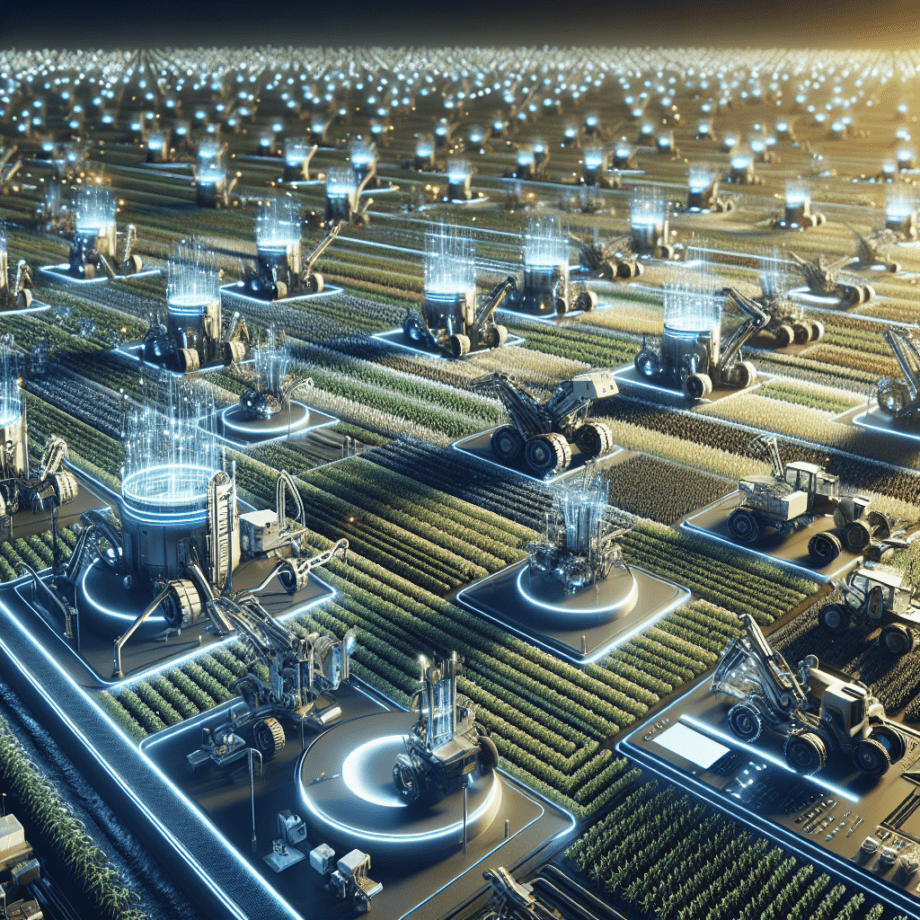Technology-Driven Machinery: The Future of Smart Farming
The agricultural sector has witnessed a significant transformation with the advent of technology-driven machinery. These advancements are not only enhancing productivity but also ensuring sustainable farming practices. This article delves into the various aspects of smart farming, focusing on the latest technological innovations in agricultural machinery and their impact on modern farming techniques.
Technological Innovations in Agricultural Machinery
The integration of technology in agricultural machinery has revolutionized the way farming is conducted. From autonomous tractors to precision planting systems, the innovations are numerous and impactful. Below are some of the key technological advancements that are shaping the future of smart farming:
Autonomous Tractors
Autonomous tractors are one of the most significant breakthroughs in agricultural machinery. These self-driving tractors are equipped with GPS, sensors, and artificial intelligence (AI) to perform tasks without human intervention. They can plow, plant, and harvest crops with high precision, reducing labor costs and increasing efficiency. The use of autonomous tractors also minimizes human error, leading to better crop yields and optimized resource usage.
Precision Planting Systems
Precision planting systems utilize advanced technologies such as GPS, sensors, and data analytics to plant seeds at optimal depths and spacing. These systems ensure that each seed is placed in the best possible position for growth, leading to uniform crop stands and higher yields. Precision planting also reduces seed wastage and ensures that resources such as water and fertilizers are used efficiently.
Drones and Aerial Imaging
Drones equipped with high-resolution cameras and sensors are becoming increasingly popular in agriculture. They provide farmers with real-time aerial imagery and data on crop health, soil conditions, and pest infestations. This information allows farmers to make informed decisions and take timely actions to address issues. Drones also enable precision spraying of pesticides and fertilizers, reducing chemical usage and environmental impact.
Robotic Harvesters
Robotic harvesters are designed to automate the harvesting process, which is traditionally labor-intensive and time-consuming. These machines use AI and machine learning algorithms to identify ripe crops and harvest them with precision. Robotic harvesters can work around the clock, increasing productivity and reducing the reliance on seasonal labor. They are particularly useful for crops that require delicate handling, such as fruits and vegetables.
Impact of Smart Farming on Modern Agriculture
The adoption of technology-driven machinery in agriculture has far-reaching implications for the industry. Smart farming practices are transforming traditional farming methods, leading to numerous benefits:
Increased Efficiency and Productivity
One of the most significant advantages of smart farming is the increase in efficiency and productivity. Technology-driven machinery allows farmers to perform tasks more quickly and accurately, reducing the time and effort required for various farming activities. This increased efficiency translates to higher crop yields and better resource management.
Cost Savings
While the initial investment in advanced agricultural machinery can be high, the long-term cost savings are substantial. Autonomous tractors and robotic harvesters reduce the need for manual labor, leading to lower labor costs. Precision planting and spraying systems optimize the use of seeds, water, and fertilizers, reducing input costs. Additionally, the early detection of crop issues through drones and sensors can prevent costly crop losses.
Sustainability and Environmental Benefits
Smart farming practices contribute to sustainability and environmental conservation. Precision agriculture techniques minimize the overuse of chemicals, reducing soil and water contamination. Autonomous machinery and drones reduce fuel consumption and greenhouse gas emissions. By optimizing resource usage and reducing waste, smart farming promotes sustainable agricultural practices that benefit both the environment and future generations.
Data-Driven Decision Making
The integration of data analytics in agricultural machinery enables farmers to make informed decisions based on real-time data. Sensors and drones collect vast amounts of data on soil conditions, weather patterns, and crop health. This data is analyzed to provide actionable insights, allowing farmers to optimize their farming practices. Data-driven decision making leads to better crop management, higher yields, and reduced risks.
Challenges and Future Prospects
Despite the numerous benefits of technology-driven machinery, there are challenges that need to be addressed for widespread adoption:
High Initial Costs
The high initial investment required for advanced agricultural machinery can be a barrier for small and medium-sized farmers. Governments and financial institutions need to provide support through subsidies, grants, and low-interest loans to make these technologies accessible to all farmers.
Technical Expertise
The operation and maintenance of advanced machinery require technical expertise. Farmers need to be trained in the use of these technologies to fully realize their benefits. Extension services and training programs can play a crucial role in building the necessary skills and knowledge among farmers.
Data Privacy and Security
The collection and use of data in smart farming raise concerns about data privacy and security. Farmers need to be assured that their data is protected and used ethically. Clear regulations and guidelines are essential to address these concerns and build trust in technology-driven farming practices.
Future Prospects
The future of smart farming looks promising, with continuous advancements in technology. The development of more affordable and user-friendly machinery will drive wider adoption. Innovations such as blockchain for supply chain transparency, AI for predictive analytics, and IoT for real-time monitoring will further enhance the capabilities of smart farming. Collaborative efforts between governments, research institutions, and the private sector will be crucial in driving the growth and sustainability of technology-driven agriculture.
In conclusion, technology-driven machinery is revolutionizing the agricultural sector, paving the way for smart farming practices. The integration of advanced technologies in agricultural machinery is enhancing efficiency, productivity, and sustainability. While challenges remain, the future prospects of smart farming are bright, promising a more efficient and sustainable agricultural industry.
